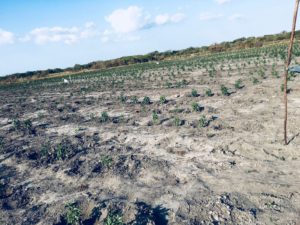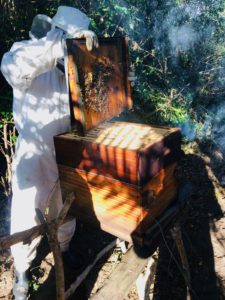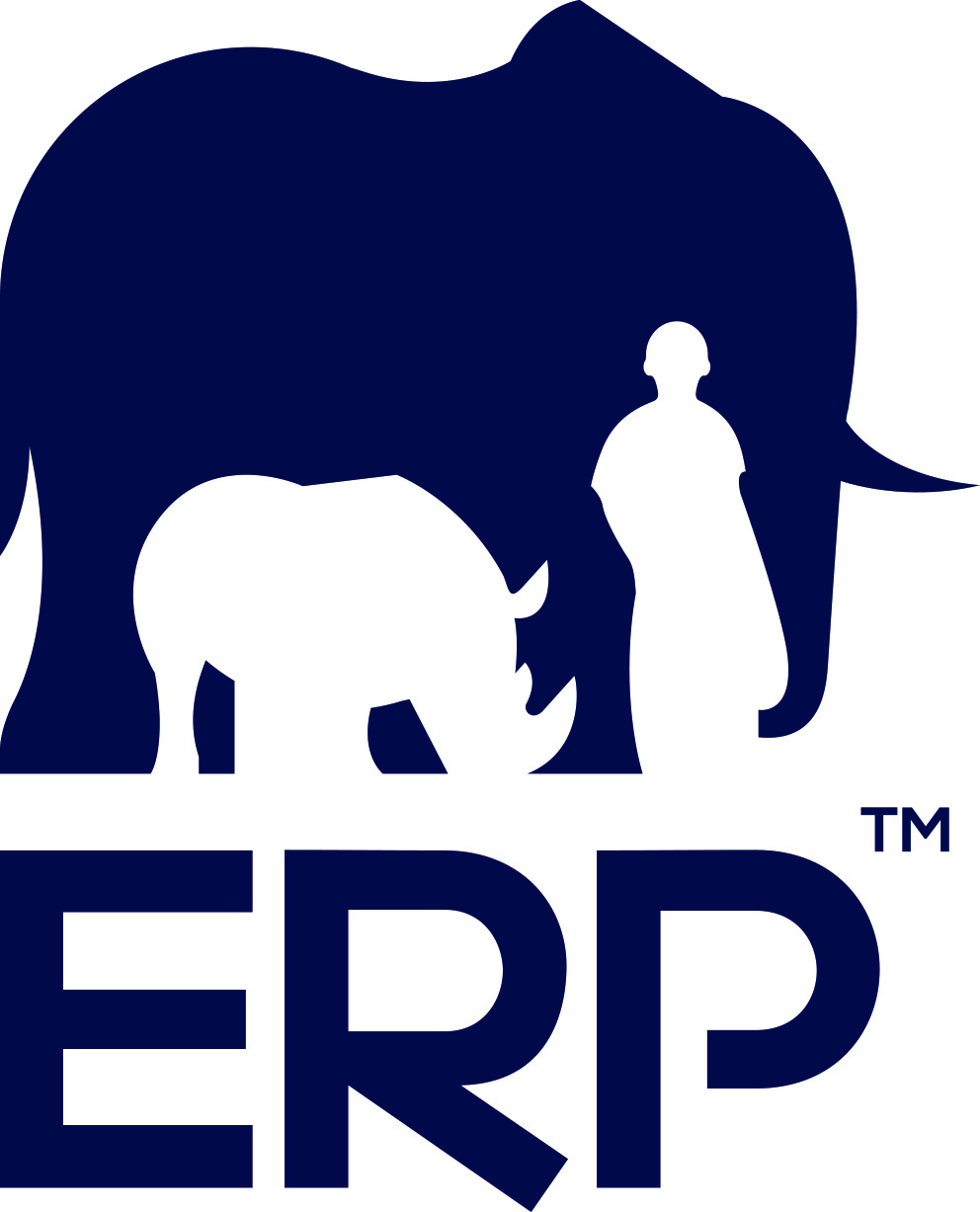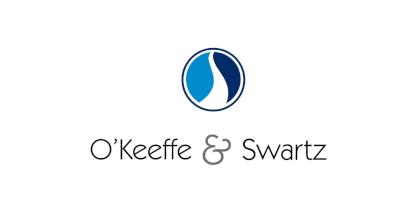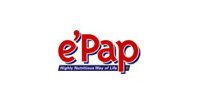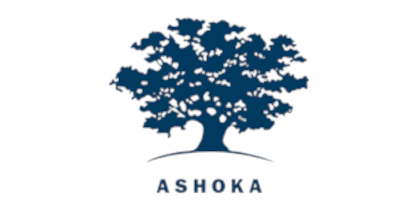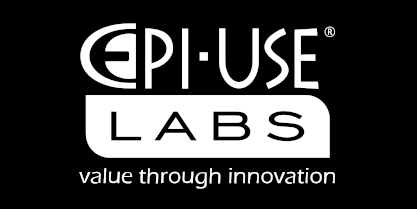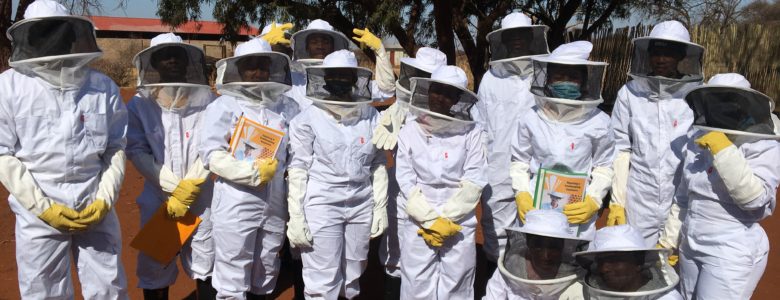
Updates from our projects during the month of September 2021
September was Heritage month. This was a month that brought to the fore one of the more pertinent issues that define us as a nation- heritage; helping us to reflect on the past and focus on shaping the future. Heritage incorporates the human, fauna and flora aspects, which is why in some cultures, totems related to various animals form the basis of how humans interact and preserve wildlife. This belief is also echoed in our own mission, through Elephants, Rhinos and People (ERP, as the P.E.A.C.E. Foundation is responsible for all People related projects in ERP) which seeks to address the more pressing socio-economic challenges through protecting wildlife. Our actions towards protecting our wildlife and natural resources today will guarantee that future generations enjoy the same heritage we currently enjoy. To that end, we showcase some of the highlights from our projects during the month of September.
RHINO AND HERTAGE DAY CELEBRATIONS IN VAALWATER
Despite the national Covid-19 lockdown, Letticia and the Waterberg Waves FM were able to attend the sixth anti-poaching annual public speaking competition held at Lapalala wilderness school. 33 learners from 18 schools in the Waterberg region participated in public speaking debating on the social, political and economic impacts on rhino poaching in South Africa. This is an annual event funded and supported by My Planet Rhino Fund, Lapalala Wilderness staff, Waterberg Biosphere Reserve, The Waterberg Living Museum, Endangered Wildlife Trust, Tintswalo Lodge in Lapalala and many more. This year, the event coincided with National Heritage Day, another important day on the national calendar.
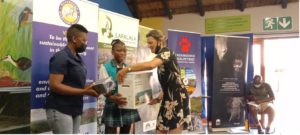
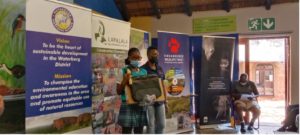
UPDATES FROM WATERBERG WAVE FM
Apart from participating at the Rhino Day celebrations last month, the ERP funded Waterberg Waves FM also ran a number of programmes that focused on other themes that were commemorated during the month of September. These include recognising the importance of Arbor week in preserving trees in the natural environment, and the role of waste pickers in clean-up campaigns that help to keep the environment clean and aesthetically pleasing. This was over and above the weekly ERP feature focusing on conserving wildlife and alleviating poverty. We appreciate the role that the radio station has as a key communication and education tool, and we commend and applaud its staff for always coming up with informative programmes relevant to their audience.

ERP DEPLOYS 50 BICYCLES IN MADIKWE
Towards the end of September, ERP delivered 50 bicycles to Olefile Secondary. This is the same school where we deployed the MathU programme in August this year. This delivery further cements our arrangement with the Barokologadi Community Property Association (BCPA), where ERP entered into a lease agreement with the CPA that will see us implement conservation and poverty alleviation strategies, in partnership over this long term period. The delivery of the bicycles was yet another success, and we express our gratitude to Nicolai van der Merwe, Gert Vermeulen and their #BIKES4ERP team for the continued dedication towards the successful implementation of this very life-changing project for the recipients.
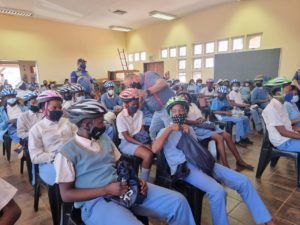
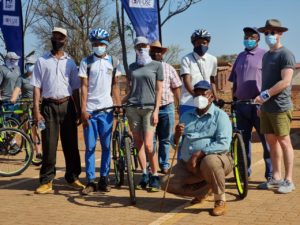
MADIKWE APICULTURE PROJECT
Training of the prospective Beekeepers, by Portia Morudi, commenced at the beginning of September. A total of 180 hives were delivered onsite, with the last 20 to be constructed at the next training session. We are pleased to report that bees have already started populating the hives even before she started with her training. At this stage the hives will remain in a shed to allow for the fence to be erected prior to the establishment of the bee sanctuary. We expect the populated hives to be moved to the identified sanctuary site in the next few weeks, when Portia will return to review the site.
Here are Portia Morudi’s words regarding this project: “A heartfelt thank you to everyone for making this possible and reviving their hope as some of them had expressed that they had given up on any prospects of getting employed, let alone owning a business, so they are truly grateful and so am I.”
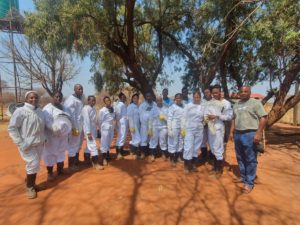
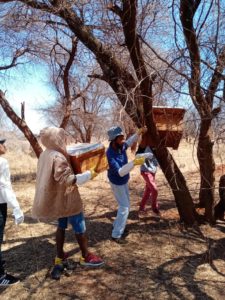
MADIKWE LEARNERSHIP PROGRAMME
We commenced with the Madikwe IT Learnership Programme as part of our long-term partnership with the BCPA. The programme will see 30 candidates from four BCPA villages being trained in various IT related subjects over a 12-month period. The programme aims to provide these candidates, all from remote villages, with an opportunity to gain IT skills, allowing them to also be part of the Fourth Industrial Revolution. This programme is one of the various poverty alleviation interventions being implemented by ERP to benefit the community and address rampant unemployment. ERP have started working on conservation programmes that will protect the community’s wildlife, including the proposed establishment of a rhino sanctuary.
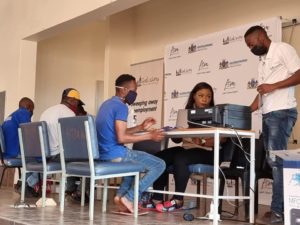
NTSHABELENG WASTE COOPERATIVE UPDATES
The Cooperative continued collecting their recyclable waste materials during the month of September and are now busy weighing and consolidating the various volumes prior to sending them off to the market.
We want to thank and commend our long-time colleague, Dr Tlou Setumu, for implementing a successful clean-up campaign within the Molemole Municipality. This campaign was linked to the celebration of Heritage month, as it included traditional music recordings (Heritage preservation) which was used to raise awareness of the importance of having clean surroundings (Environment conservation) in which tourists would find it pleasurable to visit our rural areas, such as the Blouberg, Makgabeng and Senwabarwana (Tourism development). We look forward to working closely with Dr Setumu and the Molemole Municipality through implementing various environmental and conservation initiatives that will culminate into numerous socio-economic spin offs within the Municipality.
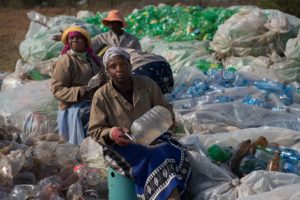
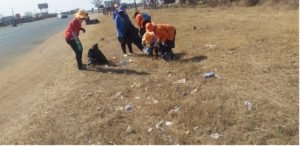
SEKELEKANI COOPERATIVE UPDATES (GAZINI)
We are pleased to report that the Cooperative has started transplanting of the chilli seedlings, for their expectant next crop, having received them during the course of the month. Additionally, bees continue to populate the Cooperative’s hives, which hopefully will lead to an increased honey yield. We will provide more updates in next month’s newsletter.
